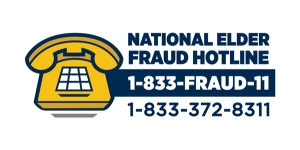Press Release
U.S. Attorney’s Office Partners With Meals on Wheels in Wake County to Stop Coronavirus (COVID-19) Fraud
For Immediate Release
U.S. Attorney's Office, Eastern District of North Carolina
RALEIGH – The U.S. Attorney’s Office for the Eastern District of North Carolina continues to promote the Department of Justice’s (DOJ) Elder Justice Initiative (EJI) throughout the Wake County area. On April 14, 2020, the Eastern District partnered with Meals on Wheels in Wake County to conduct outreach to approximately 1,300 seniors in the area to raise awareness about Coronavirus (COVID-19) fraud.
Below are some facts shared with the community about how to protect against becoming a victim of COVID-19 scams:
- Hang up on robocalls. Scammers are using illegal robocalls to pitch everything from scam Coronavirus treatments to work-at-home schemes.
- Verify information. Contact trusted sources to confirm information is correct. For the most up to date information about Coronavirus, visit the Centers for Disease Control and Prevention (CDC) at www.cdc.gov.
- Know from whom you are buying. Online sellers may claim to have in-demand products like cleaning, household, and health and medical supplies when, in fact, they do not.
- Do not click on links from sources you do not trust. They could download malware onto your computer or device.
- Do your homework. Do not let anyone rush you into making a donation. If someone wants donations in cash, by gift card, or by wiring money, do not do it.
If you believe you are a victim of a scam, call local law enforcement and file a complaint online or by phone:
National Center for Disaster Fraud (NCDF): (866) 720-5721
www.IC3.gov (cyber)
The mission of the Elder Justice Initiative is to support and coordinate DOJ’s enforcement and programmatic efforts to prevent and combat elder abuse, neglect, financial exploitation and scams that target our nation’s seniors by promoting justice for older adults; helping older victims and their families; enhancing state and local efforts through training and resources; and supporting research to improve elder abuse policy and practice.
For more information about DOJ’s efforts to prevent and combat elder abuse, please visit the Elder Justice Website at https://www.justice.gov/elderjustice. Elder fraud complaints may be filed with the FTC at www.ftccomplaintassistant.gov or at 877-FTC-HELP. You can also contact the Victim Connect Hotline between 9am-6pm, Monday through Friday, at: 1-855-4VICTIM (1-855-4842846), or contact the Elder Justice Coordinator at the U.S. Attorney’s Office for the Eastern District of North Carolina at (919) 856-4530.
***
The year 2020 marks the 150th anniversary of the Department of Justice. Learn more about the history of our agency at www.Justice.gov/Celebrating150Years.
Updated April 14, 2020
Topic
Elder Justice
Component

 U.S. Department
of Justice
U.S. Department
of Justice
